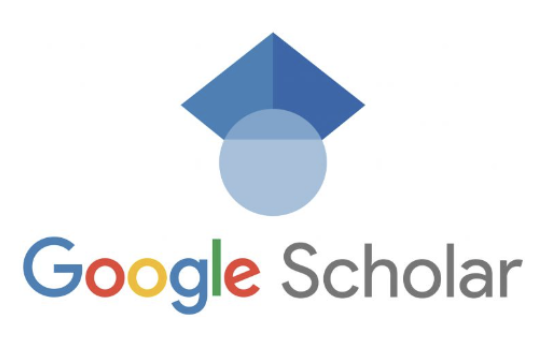Yale University Library Research Guides – Google scholar for Research A guide for those using Google and its tools to do research.
Why Google?
No one can deny that Google’s various search engines are powerful tools for research—but we’ve all had that experience where we can’t find what we want and have no idea how to get the best sources. Whether your searches yield too many results, too few relevant results, or results that might not be the most current scholarship in a discipline, this series of workshops (and the guide that you are reading) will demonstrate advanced search techniques for navigating different Google products more effectively and efficiently.
Workshop Information
We offer a series of workshops that focuses on getting the most out of Google products. Click on the workshop tab for more information. Content may include:
· Google Images
· Google Scholar
· Google Scholar profiles
· Using Google Scholar with citation management software
Google Resources
Workshop Handouts
-
A handout on Google Images
More on Copyright
-
A tool you can use for determining if the materials you are using probably fall within Fair Use.
-
Resources for thinking about copyright.
CLS Google Scholar Workshop
-
CLS Google Scholar Presentation
A presentation given in August 2018 for students on Google Scholar and the best ways to use it for academic research.
Keeping Up with Google
-
Google Guide is the place to go if you are ever wondering if you can do x in any of its search engines. It will walk you through major Google operators, minor Google operators, and obscure Google operators so you can bring your search to the next level.
-
If you want to track important Google product updates, Google Inside Search is the place to start.
-
Google Inside Search (Web site)
A guide from the Google search engineers themselves. This web site contains search tips, videos, and a link to their ever-popular Power Searching with Google MOOC. -
This covers the entirety of Google. Google employees blog here about Google products, search technology, and information culture.
Articles of Interest for Using Google Products
-
Creating Filters in Gmail – Google Help
Gmail’s filters allow you to manage the flow of incoming messages. Using filters, you can automatically label, archive, delete, star, or forward your mail, even keep it out of Spam. -
Using Dots in Emails – Lifehacker
This will NOT work for EliApps, but if you are curious about how to filter your email using address dots, this is the place to go for a tutorial. You can use dots in your email to create better search filters and rules for where things go when they are sent to you.
Google Scholar Troubleshooting Checklist
Search for the journal you want on this page: http://wa4py6yj8t.search.serialssolutions.com/?L=WA4PY6YJ8T&tab=JOURNALS. If the journal isn’t there, we probably do not have it electronically. If the journal is there, look at the date information below its title. You can also use the Citation Linker to look up a specific article.
Do we have it in print? We don’t have electronic back files for all of our journals. Search in QuickSearch Books+ for the journal title and be patient. If it’s an international journal — which often means that the original language of the journal is German or Russian — there may be some interesting transliteration or translation idiosyncrasies in the library catalog. English-language names are often mapped to the original language’s publication name.
We recommend enclosing any journal title in quotation marks (e.g., “Journal of Interesting Science“) so the catalog searches for the phrase instead of each individual word. You can also search for the journal by its 8-digit ISSN. (But be careful, as some journals have multiple ISSNs for electronic, print, and some legacy versions.) If you spend more than 20 minutes on this, send your subject librarian an email.
If you have tried all of the above and we do not seem to have it, use Interlibrary Loan or contact your subject specialist.
If you tried everything, it says we have access, and you appear to not have access, several things could be going wrong. First, if you are off-campus, double check that you are on the VPN or that you are using the Yale proxy URL to access the resource.
You can easily tell if you are on the VPN by visiting this page. If you’ve lost a VPN connection, that page will tell you. If you are using the proxy URL, “yale.idm.oclc.org” will be somewhere in the URL. You can also try to add https://yale.idm.oclc.org/login?url= to an https:// URL to enable the proxy server. An example of this in practice is https://yale.idm.oclc.org/login?url=https://webofknowledge.com.
Most often, problems connecting to resources happen because a website has saved cookies in your browser. Clear your browser’s cookies for the journal/aggregator’s web site and try again.
If none of the above works, contact your subject specialist. Your subject specialist may loop in others, such as the e-resources troubleshooting team.
Trouble? Find Your Subject Specialist!
Sometimes, the citation data in Google Scholar will leave you floundering, and you won’t be able to troubleshoot your way out of it. That’s what your subject specialist is for! Here is a list on the library page of subject specialists in each department. Each subject specialist has an array of knowledge of resources and tools in the disciplines they cover. If you can’t find something, talking to an information expert will often get you what you need.
What do Google Scholar and the iceberg shown above have in common? Often, when we talk about search engines versus scholarly databases, we go into a discussion of the visible versus the deep web. The visible web is easily-crawled by the spiders and data harvesters that create massive web indices for Google, Bing, and other search engines. The deep web is not so easy. The deep web contains things that spiders cannot crawl. Unfortunately, the content in the Deep Web often includes our scholarly databases!
What are some of the limits of using algorithms? Google Scholar employs fewer than a dozen people, and it has a search engine index of academic articles so large that no one knows its exact size. By contrast, companies like Thomson Reuters that produce the Web of Science have thousands of employees. Academic endeavors such as MathSciNet, which employs ~100 people, focus on specific disciplines. Even the Astrophysics Data System, which has a small team, networks with librarians and information specialists around the world to crowd-source some aspects of their information platform.
Google Scholar cannot review the integrity or the quality of the data going into its pipeline. As with the rest of the web, you are working with whatever data Google’s spiders can glean. Often, that data has errors. Papers will have garbled titles. Some citations that you cannot click through (which Google harvests from bibliographies) are actually just papers that have been incorrectly cited for decades, so Google can’t find the full text and the author can’t exactly get credit. Authors may be missing. Entire swaths of text may be corrupted or garbled. Google cannot fix any of this, and they leave it up to the web sites providing the erroneous data to make the edits on their own platforms. Any edits take 6-9 months to show in Google Scholar.
So, should I use Google Scholar? Google Scholar isn’t a bad tool — everything has its positive and negative sides. Rather, this guide will hopefully give you some of the tools you need to ensure that you can get to the full text.
Google for Research: Organizing Your Research
Bibliographic Management Tools
-
Mendeley is a free reference manager and academic social network that can help you organize your research, collaborate with others online, and discover the latest research.
-
Web-based tool available through the Yale University Library databases; free access to all Yale affiliates; ability to work off-line as well.
-
Free, web-based tool that works as a plug-in within Firefox. Zotero also has a desktop client that works well on all platforms.
Citation Style & Formats
Citation of Traditional & Online Materials
Journals, professors, and disciplines often have their own methods for formatting citations. Citation styles include the Chicago Manual of Style, Publication Manual of the American Psychological Association (APA), and the Modern Language Association (MLA) style.
Undergraduates: Ask your professor which citation style you should use. The most common ones for you are MLA, Chicago Manual of Style, or APA.
Graduate students: Different journals often have their own ways of managing citations. Information should be available on the citation style. If it isn’t, E-mail your subject librarian and ask for help identifying how you should cite material for your submission. You can also talk to your adviser. We get these questions all the time.
Faculty: Undergraduates often know MLA, APA, and Chicago Manual of Style the best. If they have questions about citing information properly, direct them to the Yale Center for Teaching and Learning’s guide to using sources or to Purdue’s OWL resource. Make sure they know that they need to cite images and multimedia materials as well as journal articles and books (if they use these kinds of materials at all, most likely in presentations).
Data Citation
There is no one standard for data citation. Generally, when using a data source, see if there is a standard data use policy that provides guidance on citation practices (i.e., grant references, format, authorship). If no citation policy can be found, please familiarize yourself with common data citation practices as detailed in this guide from DataOne.

